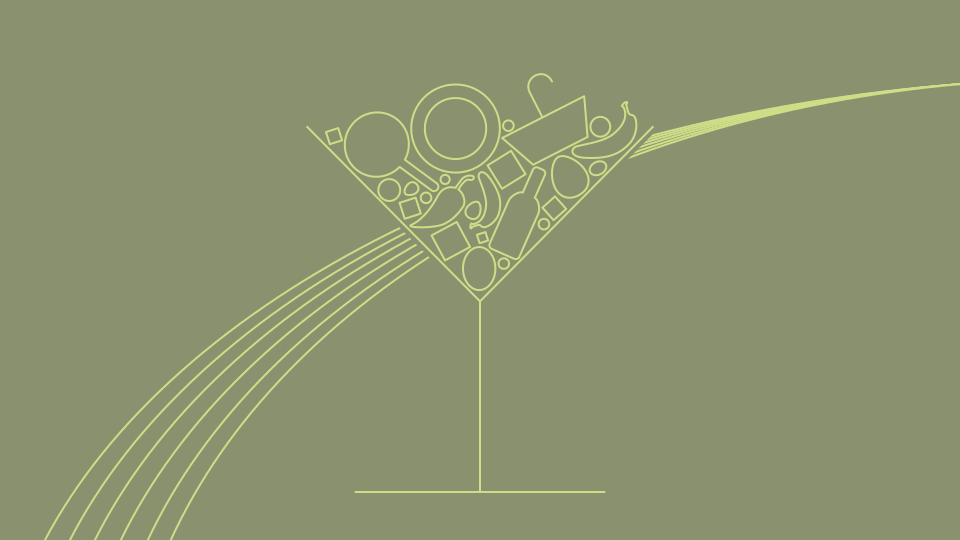What is Information Architecture?
I mean, really: what is that?
I owe this small but significant insight to one of the smartest people I wish I knew: Oliver Reichenstein. In a talk at Responsive Day Out Conference, he drops this line:
“Information architecture is horrible, depressing … it’s a little bit like cleaning your kitchen, where, you know, when you’re done, you’re actually feeling you’ve achieved something and you’ve not just made a lot of foul compromises.”
Maybe you’re different, but I have trouble explaining to people what I do sometimes, because information architecture in its entirety is terribly complex. Typical scenario: I’m at a party, sipping my Gin Tonic, and at some point in a conversation with a stranger it’s bound to come up.
“So, what do you do?”
Oh god, there it is. Staring hard into my gin, wishing I could just do a cannonball plunge into the glass and disappear, I take a deep breath and answer:
“I’m an information architect.”
“Ah.”
Awkward silence. (They are just on the verge of realizing they have no idea what that is.)
And here they go again: “So, what do you do?”
Then I either go explaining, obscurely, something about data and websites and software and structure, design, usability, mental models, user flows. Or I say:
“You’ve probably used Microsoft Word before, right?”
“Of course.”
“How was that for you? Easy enough? Did you enjoy it?”
“Uh …”
“See: that’s an example of terrible information architecture. I try to make things better than Word.”
And that solves nothing. I don’t want to be a nerdy bore, and I certainly don’t want to have a conversation about Microsoft Word at a party. (As a side note: I get the feeling Word isn’t as terrible as it used to be in the days of Clippy the Paperclip. But it still tries to do too many things at once.)
So I’ve resolved to saying something like this to describe what I do:
Imagine you want to surprise your new boyfriend / girlfriend with a nicely cooked meal. She’s not not home yet, so you go into the kitchen. There’s plates piling up in the sink on top of pans with missing handles. You find chili sauce in the icebox, right next to a couple of spoons sticking out of bananas, a trout’s head is dangling from the ceiling, there’s a solid 20 pound block of salt in a corner, eggs are scattered across the floor, there’s an olive oil dispenser screwed to the top of a cupboard. It has a picture of Hulk Hogan on it. The stove has weird unicorn buttons, its display blinking in rainbow sinus waves. You know it must be possible to cook a meal here somehow, but you haven’t the slightest clue how.
You really want to cook this meal, so what do you do? You probably feel like you should go get a bulldozer and tear down this behemoth of a mess to start anew. But chances are, you don’t know many bulldozer-drivers. So you get down to business: put the eggs in the fridge, toss the trout’s head, put the cutlery in its drawer, grind the salt and sort it with other spices on a shelf, and write down what you figured out about how the stove from outer space works. Now, not only you, but pretty much anyone coming into the kitchen is able to prepare a decent meal.
Cleaning up the kitchen is the prerequisite for being able to cook, because that was what you wanted to do in the first place. Just as information architecture is a prerequisite for achieving a goal related to anything displayed on a screen. So, to put it in a pedestrian way, what information architects do is cleaning up the most messed-up kitchens imaginable—a travail that might not sound as rewarding as it is.
For me, that explanation has worked so far. But I’d be curious about how you speak to other people about what you do, be it information architecture or anything else.


